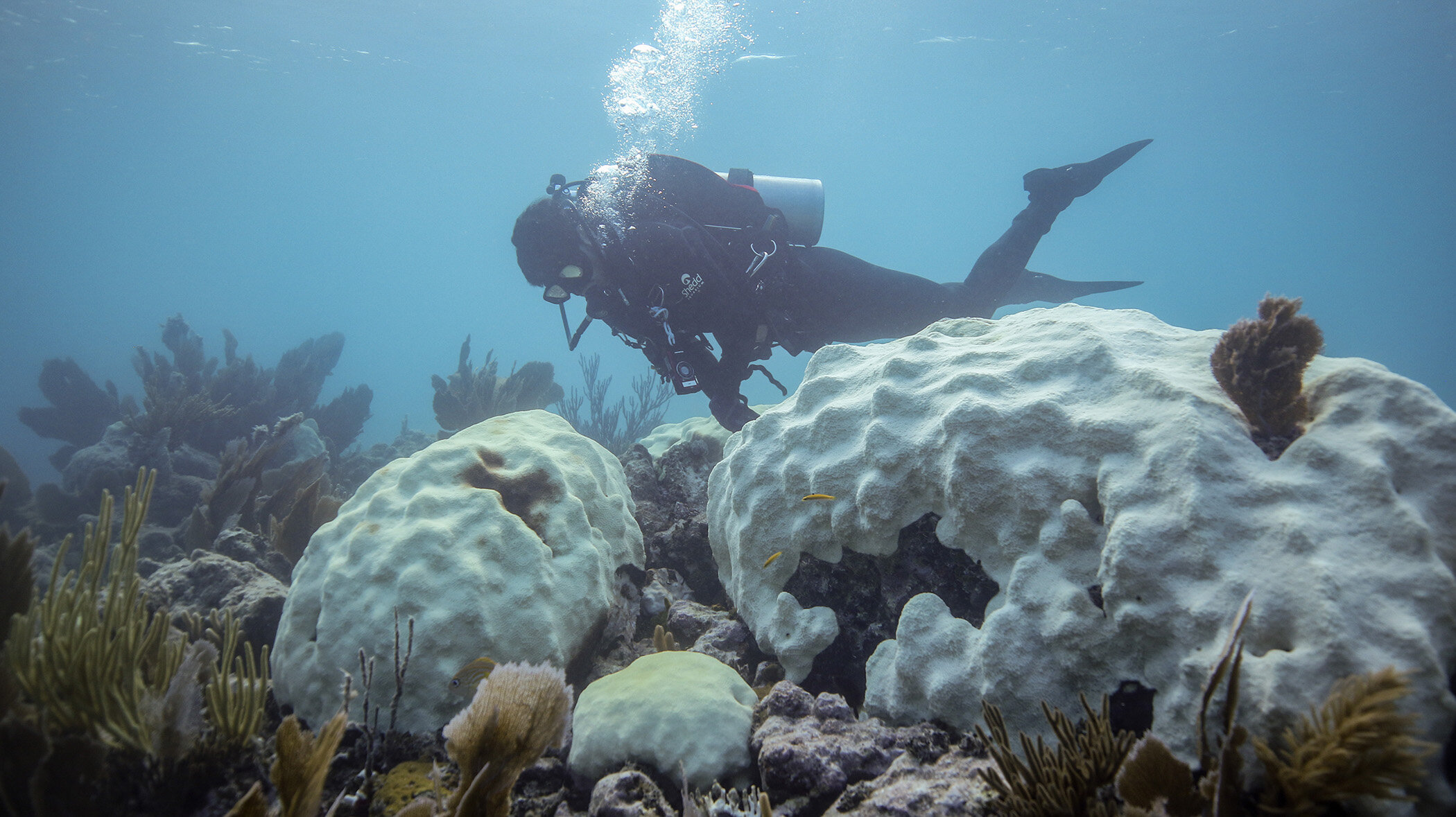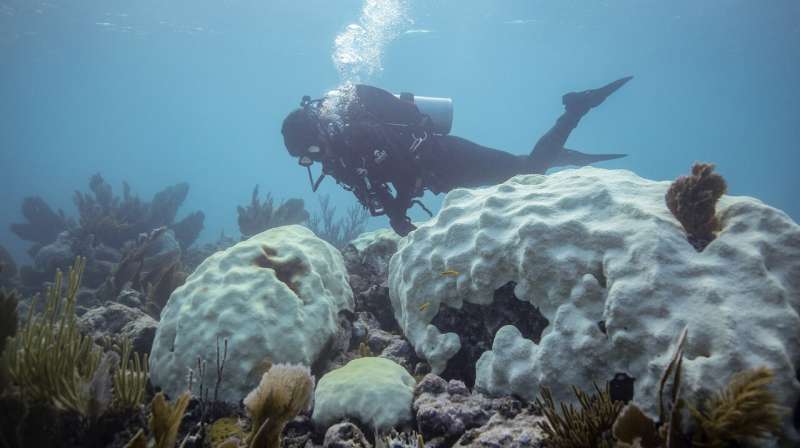

Scientists from Chicago’s Shedd Aquarium, a leader in conservation research, returned from a multi-institutional research expedition to survey coral bleaching impacts from Miami and the Florida Keys to the Dry Tortugas, following an unprecedented rise in ocean temperatures.
The week-long trip revealed that 90-95 percent of corals showed signs of extreme bleaching, and some coral species, such as endangered staghorn and elkhorn coral, were nearly all dead—a testament to how quickly water temperatures soared. Researchers at Shedd, who have long been studying coral heat tolerance, stress that Florida may be a bellwether for the future of coral reefs globally, if the climate continues to warm.
“With record high temperatures since July, we were expecting severe bleaching and prepared ourselves for the worst-case scenario, and that is unfortunately what we witnessed,” said Dr. Ross Cunning, research biologist at Shedd Aquarium. “For Shedd Aquarium, this trip begs two big questions: how do we prepare and safeguard other corals for future warming, and how can we accelerate efforts to enhance heat tolerance and give corals a chance for survival in hotter oceans?”
Aboard Shedd’s research vessel, the Coral Reef II, Shedd researchers hosted partners from the University of Miami, Palm Beach Zoo and the University of Southern California who collaborated to visit and survey 76 coral sites and report their findings to the Florida Fish and Wildlife Conservation Commission (FWC).
The group witnessed the effects of the bleaching get worse the further they ventured south. What was once colorful, thriving coral a few months prior is now stark white, indicating severe bleaching or worse—covered in algae—an indicator that the living coral tissue is gone.
While the team had hoped to bring back hundreds of genetically unique staghorn corals from the Dry Tortugas to the University of Miami’s land-based facilities for gene banking and restoration, they found that the abundant populations they had seen and studied on a previous research expedition just two months earlier suffered almost complete mortality from the extreme heat stress. The few living fragments that remained were severely bleached, and researchers believe their chances of recovery are extremely low.
Even after searching extensively throughout the Dry Tortugas—down to depths of 60 feet where researchers hoped for a greater chance for survivors—not a single viable staghorn coral was found.
“In moments like this it can feel difficult to tell a story with hope,” said Dr. Shayle Matsuda, research biologist at Shedd Aquarium. “This drastic bleaching may spread globally in the next one to two years. Our research efforts to find and save corals with higher levels of heat tolerance is more critical now than it has ever been before.”
Ocean temperatures across the globe have been steadily increasing as a direct result of climate change. These high, sometimes record-setting temperatures are sustained for months—in this case leading to the fast and expansive coral mortality event. El Nino, a climate pattern that is characterized by unusually high ocean temperatures, exacerbated conditions in the Florida Keys, which registered temperatures well above their seasonal peak early in the summer.
For the past several years, Shedd Aquarium’s research team has been focused on learning more about the natural variance of heat tolerance in coral to determine how interventions harnessing genetics or microbial conditions can help corals withstand higher ocean temperatures. Unfortunately, large colonies of elkhorn and staghorn coral that were the focus of various research and restoration efforts were wiped out by this mass bleaching.
“Tragically, our mission turned from rescue to witness,” said Cunning. “This is the worst bleaching event in history, and the impacts the high temperatures have had on Florida’s genetic coral diversity cannot be overstated.”
Despite this setback, Shedd Aquarium remains more committed than ever to working with partners in Florida and beyond to monitor native reefs and advocate for stronger coral safeguards and intervention strategies as ocean temperatures continue to rise.
Provided by
Shedd Aquarium
Citation:
Recent research expedition reveals alarming extent of coral mortality in Florida (2023, October 4)
retrieved 4 October 2023
from https://phys.org/news/2023-10-reveals-alarming-extent-coral-mortality.html
This document is subject to copyright. Apart from any fair dealing for the purpose of private study or research, no
part may be reproduced without the written permission. The content is provided for information purposes only.

